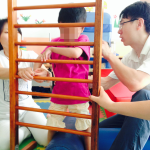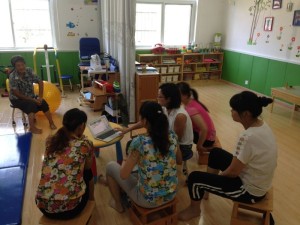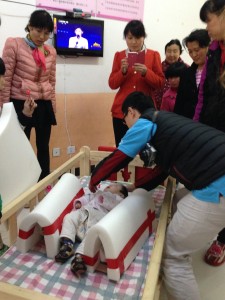This summer, Physical Therapist ZiLi Wang and Occupational Therapist Irene Zhang, both of LIH Olivia’s Place Shanghai, conducted their third visit to an orphanage in Anhui province, following up on their previous teaching while introducing new assessment tools and techniques.
The welfare center, the YingShang County Social Children Welfare House, was initially started in 1994 under another name – the Wang Family Foster Home – and has grown from a small labor of love to one of the biggest welfare centers in the province, having cared for over 500 disabled orphans over its 22-year history. It had moved locations multiple times before settling into its current location in YingShang County.
Mr. Wang and Ms. Zhang taught therapists how to assess and treat the children, but also how to handle them with minimal risk of injury to the therapists themselves. This included techniques on manual handling favoring the usage of the legs over the back, and pivoting techniques to move heavier children. How to handle behavior was also an important topic this visit, including a detailed lecture on how to motivate children and how to properly use rewards and praise to encourage certain behaviors.
We look forward to the next chance to share our knowledge with the hard working therapists in Anhui!







